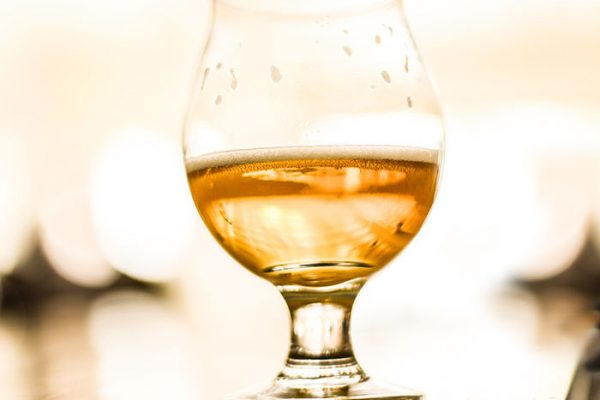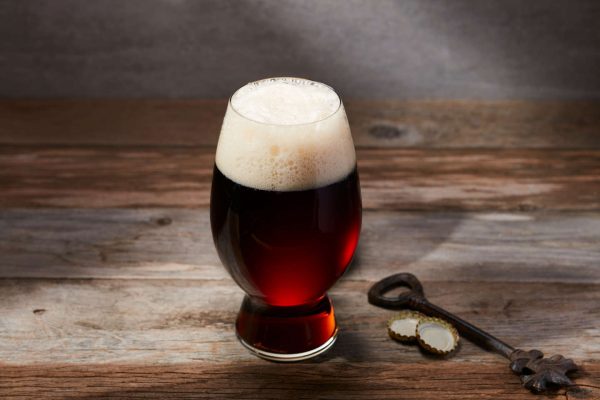
The following beer recipe is featured in the March/April 2011 issue of Zymurgy magazine. Access this issue along with the archives with Zymurgy Online!
Homebrewing enthusiasts are becoming more and more interested in sour beer. However, the amount of aging required can be daunting. How can you replicate a beer aged in large oak casks in your glass carboys or plastic buckets?
Another issue is fermenting your beer with bacteria or mixed cultures. There's a threat of cross-contamination if the same equipment is used to make a conventional beer. Investing in another set of brewing equipment is a painful idea.
Matt Lange, a freelance writer and award-winning homebrewer from Madison, Wisconsin, shares his wort souring method by creating a sour starter, which will save you time, give you more control over the level of acidity in the final product, and eliminate the threat of cross-contamination. However, it might lack the complexity of slow aging sour beers. But just like many sour beers, it can create surprising results!
For more info on brewing sour beers, check out Lange's article, "Funk with less Fuss" featured in March/April 2011 Zymurgy.
The following beer recipe is featured in the March/April 2011 issue of Zymurgy magazine. Access this issue along with the archives with Zymurgy Online!
Homebrewing enthusiasts are becoming more and more interested in sour beer. However, the amount of aging required can be daunting. How can you replicate a beer aged in large oak casks in your glass carboys or plastic buckets?
Another issue is fermenting your beer with bacteria or mixed cultures. There's a threat of cross-contamination if the same equipment is used to make a conventional beer. Investing in another set of brewing equipment is a painful idea.
Matt Lange, a freelance writer and award-winning homebrewer from Madison, Wisconsin, shares his wort souring method by creating a sour starter, which will save you time, give you more control over the level of acidity in the final product, and eliminate the threat of cross-contamination. However, it might lack the complexity of slow aging sour beers. But just like many sour beers, it can create surprising results!
For more info on brewing sour beers, check out Lange's article, "Funk with less Fuss" featured in March/April 2011 Zymurgy.
Ingredients:
- 11.0 lb (5 kg) Pilsner Malt
- 1.5 lb (680 g) Munich Malt
- 0.75 lb (340 g) Caramunich®
- 0.5 lb (227 g) cane sugar
- 2.0 oz (56 g) whole Hallertauer, 4.3% a.a. (60 min)
- Belgian-style ale strain, such as WLP 515 or Wyeast 3522
Specifications:
Yield: 5 Gallons (18.93 L)
Original Gravity: 1.07
Final Gravity: 1.015
ABV: 7.20%
IBU: 22
SRM: 9
Directions:
Mash at a lower temperature 148-150°F (64-66°C). Souring: After the mash, bring the wort to a boil, then cool to 100°F (38°C). Inoculate using either a commercial culture of Lactobacillus or a homemade sour starter (see below) culture as describe below. Try to keep the wort warm during the souring period (placing the wort back into a picnic cooler-type mash tun works great for this). Let it sour for 18 hours, then boil 90 minutes, adding your bittering hops at 60 minutes. Ferment at around 68°F (20°C). Sour Starter: Three days before brew day, take a small amount of malt and add it to a solution of warm water and sugar (malt extract or table sugar works). A few tablespoons of malt placed in a pint of low gravity sugar solution (around 1.030 OG) should be a good sour starter for a 5 gallon (18.93 L) batch. Allow it to sit for three days at around 100°F (38°C), which helps create a better culture than simply adding malt to the wort or mash. It utilizes the pH tolerances of different bacteria to isolate the good ones from the bad ones. By the third day, your sour starter is ready to be used to inoculate the wort. Continue with your brew day as you normally would.
Extract Option
Substitute 7.7 lbs (3.5 kg) Pilsner liquid malt extract for the Pilsner malt and 1 lb (454 g) Munich liquid malt extract for the Munich malt. Steep the Caramunich for 30 minutes in 158°F (70°C) water, strain, add the malt extracts and sugar, bring to a boil and proceed with the recipe as shown.



Share Post